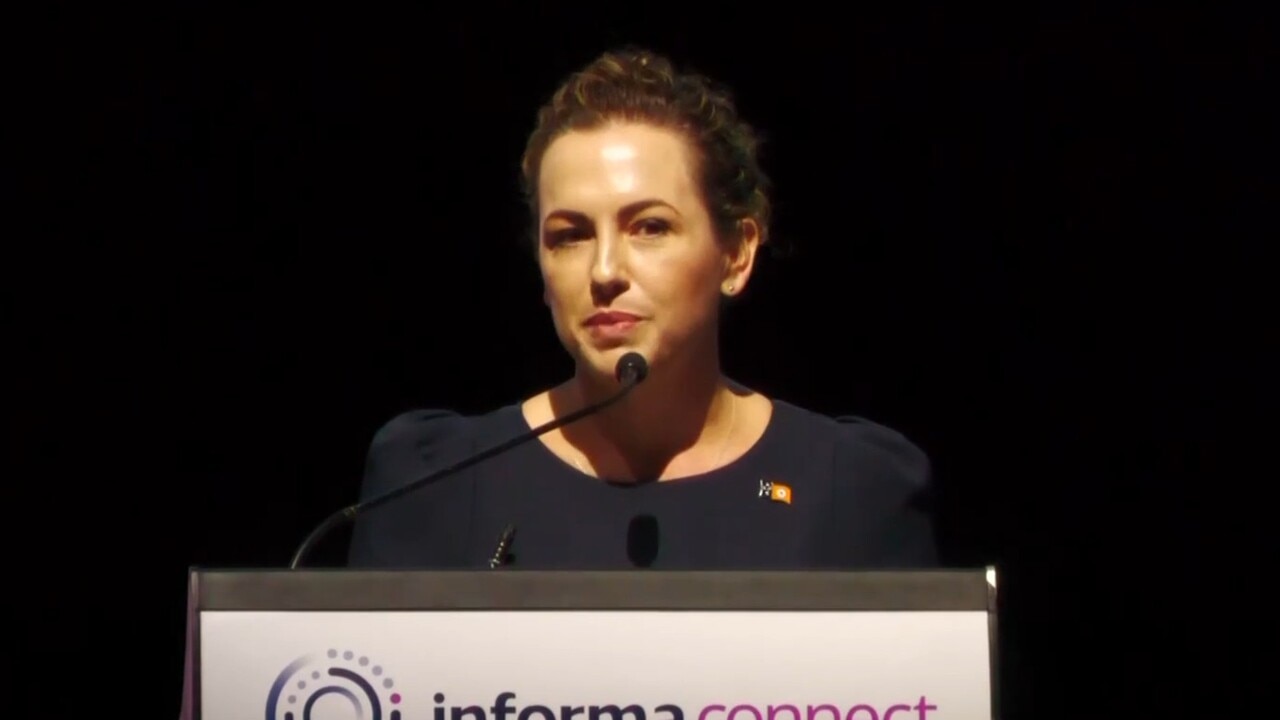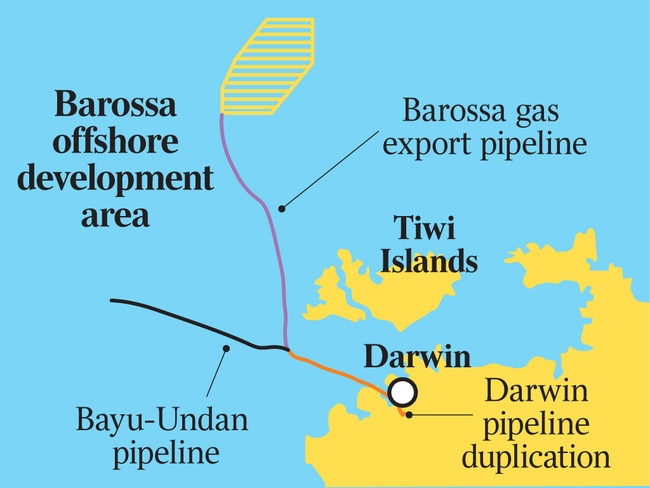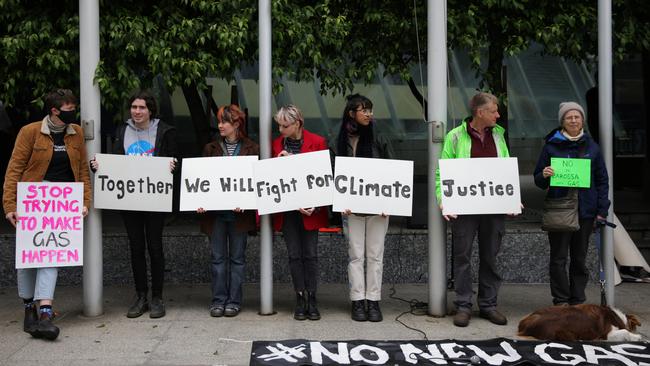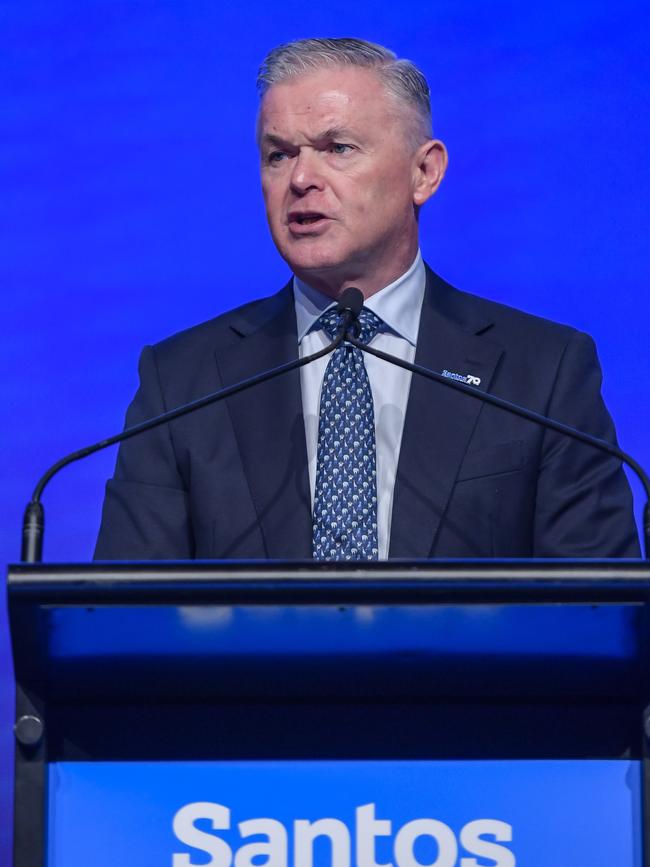Environmental Defenders Office secrets revealed as Santos chases Barossa costs
The Environmental Defenders Office is set to hand more documents to Santos, as the company tries to identify who funded a failed bid to block part of its $5.7bn Barossa LNG development.

The Environmental Defenders Office is poised to deliver the next tranche of documents to Santos, as the oil and gas company tries to identify who funded the failed bid to block a key part of the $5.7bn Barossa LNG development.
The documents, which are expected to be turned over to Santos on Friday, will guide the South Australia-headquartered company as to who it pursues for costs over legal action by a Tiwi Islander, Simon Munkara.
Mr Munkara had sought an injunction against the gas giant’s plan to develop a 262km pipeline for new LNG wells in waters off the Northern Territory, arguing it would irreparably damage cultural associations with the sea.
The Federal Court rejected the application in a scathing judgment and permitted Santos to pursue costs.
Santos has said it will not pursue Mr Munkara but will instead demand reparations from the backers of the bid.
To ascertain who Santos holds responsible, the Federal Court has ordered the EDO to turn over all communications related to the legal challenge, and The Australian understands the body will on Friday submit the third of four tranches of files.
There is widespread interest in the details of the communications, particularly after the EDO offered to pay Santos’s costs after months of insisting it was not liable.
If Santos had accepted the EDO offer, it would have ended the case and stopped the transfer of all of the EDO’s communications related to the case. The EDO would typically not be considered liable for costs as Mr Munkara’s legal counsel.

Santos is likely to be eligible for millions of dollars – a figure that would cause significant harm to the EDO.
Santos earlier this month revealed its legal costs from the case were approximately $8m.
Typically about 70 per cent of the costs incurred are offered to the victor, a sizeable sum for the EDO.
A spokeswoman for the EDO declined to comment.
Lawyers for the organisation said the offer to pay Santos was driven by a desire to end the litigation.
A spokeswoman for Santos declined to comment.
However, sources familiar with the case said the company believed the delivery of documents would provide it with the most illuminating information yet.
However, the EDO may wait until mid-October to provide the most sensitive information as the Federal Court has ruled all documents must be turned over to Santos by then.
The EDO has little scope for further delays. In the most recent hearings, Federal Court Justice Natalie Charlesworth rebuked the legal group for its failure to comply with an earlier order to hand Santos the relevant documents by the end of August, though she gave a short extension.
Lawyers for the EDO said the process of determining relevant documents was difficult, and the entity had to be mindful of so-called privileged information.

Privileged communication includes interactions between two parties where the law recognises a private, protected relationship. Whatever is communicated between the two parties must remain confidential, and the law cannot force disclosure.
The EDO assured Justice Charlesworth it was moving as quickly as possible, and had engaged outside help to accelerate the transfer.
Santos is eager to see the documents, and had offered to pay for an independent entity to accelerate the transfer – underscoring the keenness and conviction of the oil and gas company.
Santos chief executive Kevin Gallagher has repeatedly declined to comment on the matter directly, but has said that those who brought cases that were deemed to have no merit should be held accountable.

The comments illustrate growing frustration in the Australian gas industry after environmentalists used the courts to slow or block LNG developments.
Santos has been a particular target, with critics successfully arguing on behalf of Indigenous groups.
Santos’s Barossa project was delayed by more than a year when the Federal Court ruled the company had not adequately consulted with stakeholders before seeking approval for its environmental plan.
The federal government had promised to restrict the capacity of opponents to use the courts, but shelved plans earlier this year.
But Santos’s aggressive pushback appears to have altered the legal landscape.
In August, in an unrelated case, the Australian Conservation Foundation dropped its legal bid to block Woodside’s $16.5bn Scarborough LNG project off the coast of Western Australia.
In 2022, the ACF asked the Federal Court to order a suspension of work on the project until an assessment was made about its potential effects on the Great Barrier Reef.
Originally published as Environmental Defenders Office secrets revealed as Santos chases Barossa costs




